
[ezcol_1third]
Time for conversion
from abundance to the necessary
from exaggeration to frugality
from wanting to be satisfied
from addiction to freedom
Time for conversion
from hypocrisy to sincerity
from narrow-mindedness to broad-mindedness
from self-righteousness to goodness
from arbitrariness to clarity
from fickleness to faithfulness
Time for conversion
from the I to the Thou
from alienation to closeness
from indifference to sympathy
from grievance to reconciliation
from hostility to peace
Time for conversion
from noise to silence
from hectic to pause
from impatience to serenity
from distraction to composure
from the surface to the essential
[/ezcol_1third] [ezcol_1third]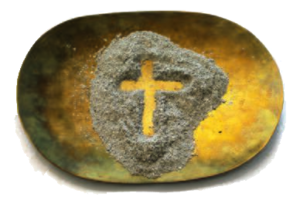 [/ezcol_1third] [ezcol_1third_end]
[/ezcol_1third] [ezcol_1third_end]
Tiempo de conversión
de la abundancia a lo necesario
de la exageración a la frugalidad
del deseo de tener a la satisfacción
de la adicción a la libertad
Tiempo de conversión
de la hipocresía a la sinceridad
de la estrechez de miras a la amplitud
del fariseísmo a la bondad
de la arbitrariedad a la claridad
de la inconstancia a la fidelidad
Tiempo de conversión
del yo al tú
del distanciamiento a la cercanía
de la indiferencia a la simpatía
del agravio a la reconciliación
de la hostilidad a la paz
Tiempo de conversión
del ruido al silencio
de la agitación a la pausa
de la impaciencia a la serenidad
de la distracción a la serenidad
de lo superficial a lo esencial
[/ezcol_1third_end]
Letter to Fr. Jordan on his Beatification
 Dear Fr. Jordan,
Dear Fr. Jordan,
You are an inspiration to all Salvatorians and their friends who are impacted by your humble beginnings. You light the way for all of us ~ past, present and future ~ to be directed by your vision and mission. You have given of yourself to blaze an unparalleled trail in the community for us to follow with trust.
Your Priests are Priests forever in the Order of Melchizedek to serve sacramentally and spiritually. Your Brothers are bound together to serve the peoples’ needs and the Church’s directives. Your Sisters serve the unfortunate and marginalized bringing joy and hope to hearts. Your Lay bring their families to the Eucharistic Table encountering Jesus. They are fed spiritually, so that they may serve and feed the hungry of heart. Continue Reading
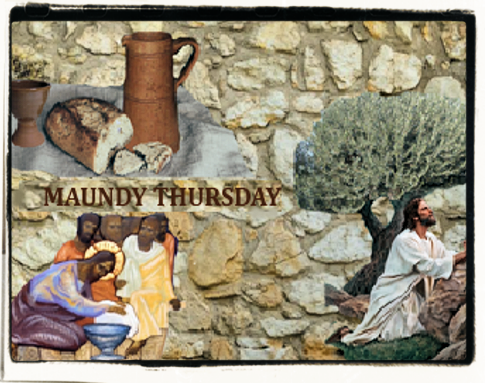
Jesus himself washes the feet of his disciples and invites us to humble service to our fellowmen:
“When I, your Lord and your master, have washed your feet, you should also wash each other’s feet. I have set an example; what I have done for you, you should also do” (John 13, 14-15).
We feel the same as the apostles Continue Reading
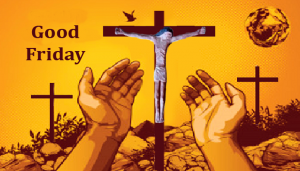
Jesus set an example of His faithfulness and love to the utmost, even if it costs Him His life.
You, from a distant land, stranded in a rusty boat; Continue Reading
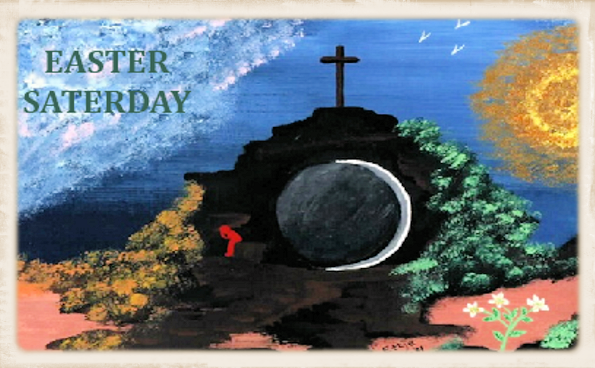
This quiet day invites us to pause and reflect on the meaning of Jesus’ way of life and faithful love for God and people until death.
From death to new life Continue Reading
English – Español – Deutsch – Vlaams – Français
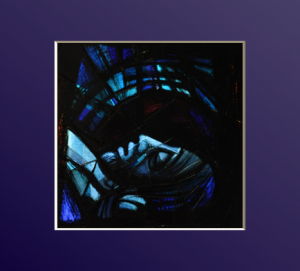
“Nicodemus, the one who had first come to him at night, also came bringing a mixture of myrrh and aloes weighing about one hundred pounds. They took the body of Jesus and bound it with burial cloths along with the spices, according to the Jewish burial custom. Now in the place where he had been crucified, there was a garden, and in the garden a new tomb, in which no one had yet been buried. So they laid Jesus there because of the Jewish preparation day; for the tomb was close by.” (John 19:39-42)
Joseph of Arimathea and Nicodemus wrapped Jesus, who had been freed from the cross, in a cloth and carried him to a nearby burial site. According to other sources, such as the Gospel of Mark, there were also a number of women among them. Nevertheless, it now seems to have been a rather family affair, in contrast to the crowd at the execution.
With the laying down and embalming in the new tomb (a symbol of the purity of Christ) Jesus now escapes the curious glances. Noise and turmoil remain, silence and concentration return. Finally, the heavy stone is rolled in front of the entrance to the tomb. This stone, it seems in the truest sense of the word, is supposed to have been the keystone among the affairs of Jesus of Nazareth. Was the chapter closed with him and all hope buried? Continue Reading
English – Español – Deutsch – Vlaams – Français
Station 13: Jesus is taken down from the cross
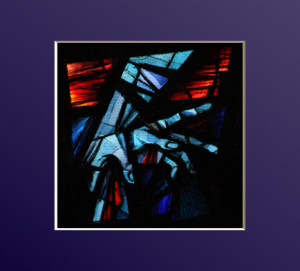
“After this, Joseph of Arimathea, secretly a disciple of Jesus for fear of the Jews, asked Pilate if he could remove the body of Jesus. And Pilate permitted it. So he came and took his body.” (John 19:38)
The image of the Pieta comes to mind, the image of Mater Dolorosa, the Mother of Sorrows. Jesus is taken down from the cross and placed in the arms of his mother. An adult human being, lifeless in the same arms that once carried Him and the womb that gave birth to him. A mother weeps for her child who she has brought to life and cared for years, with whom she had shared countless hours of joy. She is a picture of unspeakable grief, indescribable tenderness, and wordless despair.
Mary, the mother, loves with her whole being beyond physical death. So much is expressed in this silent embrace: it is the image of a love for which bodily death is not a barrier and does not mean the end. Continue Reading
English – Español – Deutsch – Vlaams – Français
Station 12: Jesus dies at the cross
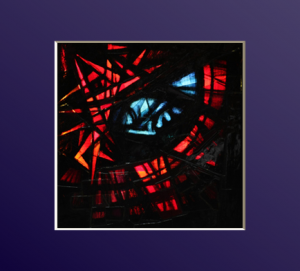
“And at three o’clock Jesus cried out in a loud voice, “Eloi, Eloi, lema sabachthani?” which is translated, “My God, my God, why have you forsaken me?” Some of the bystanders who heard it said, “Look, he is calling Elijah.” One of them ran, soaked a sponge with wine, put it on a reed, and gave it to him to drink, saying, “Wait, let us see if Elijah comes to take him down.” Jesus gave a loud cry and breathed his last.“ (Mark 15:34-37)
A last act of earthly love and tenderness: Jesus asks the disciple John to take care of his mother and asks his mother to accept John in his place. Both do not leave his side until the last breath.
Let us try to enter into this scene mentally. Before us lies only sadness, no comfort, no hope. – Everything seems to have come to an end… Continue Reading
English – Español – Deutsch – Vlaams – Français
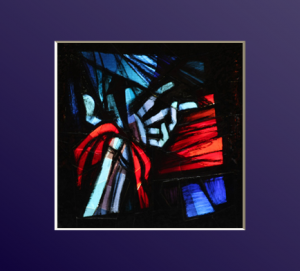
“When they came to the place called the Skull, they crucified him and the criminals there, one on his right, the other on his left. Then Jesus said, “Father, forgive them, they know not what they do.” (Luke 23:33-34)
Jesus, who always taught openly and freely, is now nailed down. Like a piece of wood that you take hold of, that you have at your disposal. He is crucified and is suffering the most shameful punishment that existed at that time.
God is nailed down by men, his size reduced. He surrenders himself completely. In his incredible love for us he allows this to happen… Continue Reading